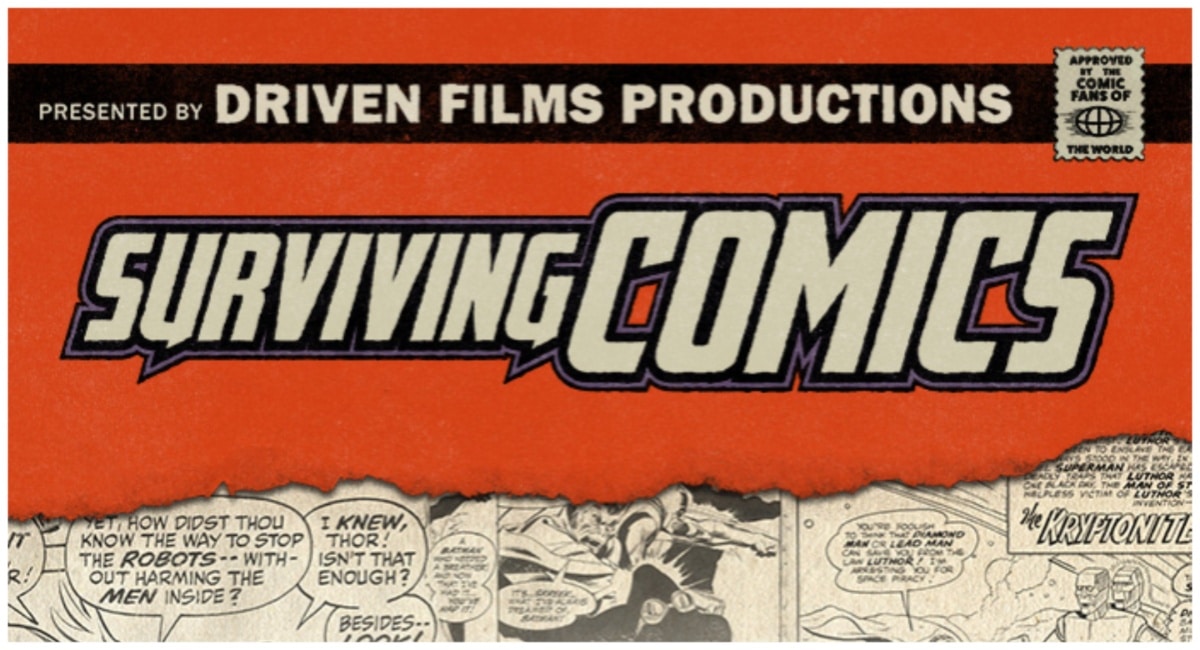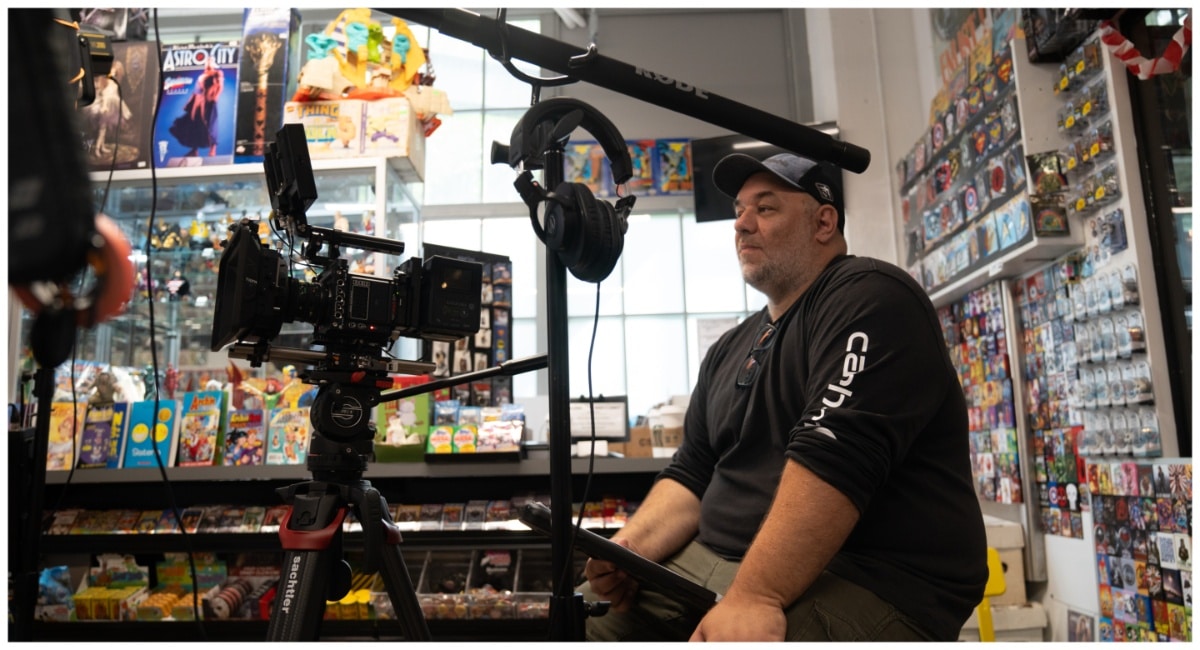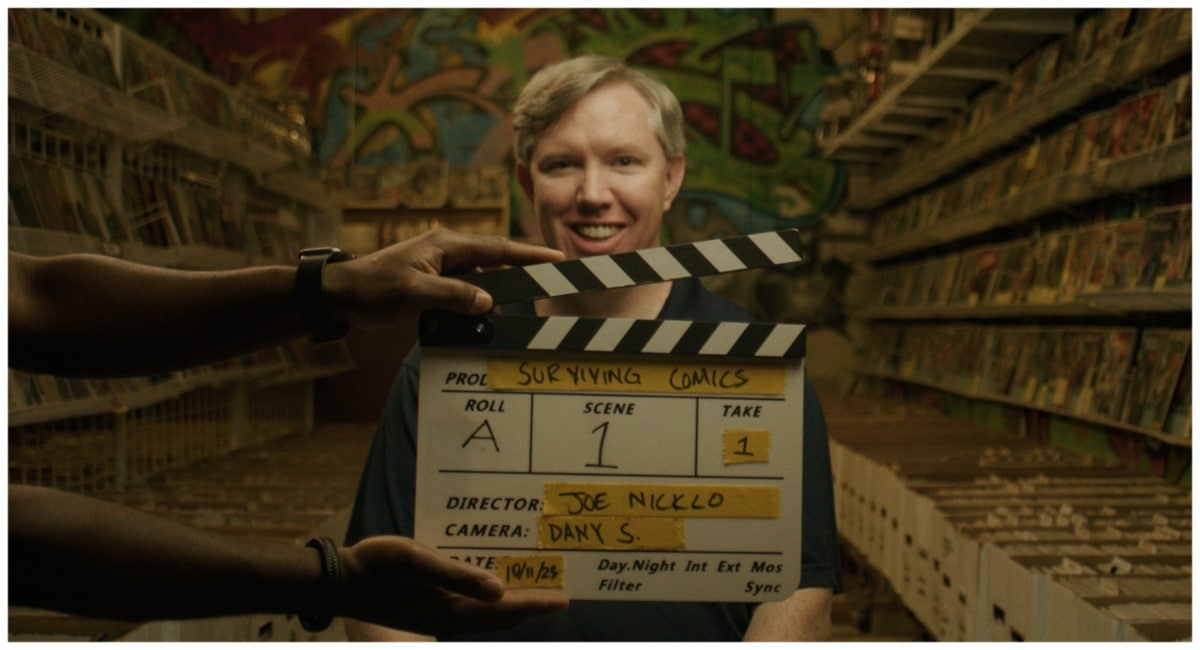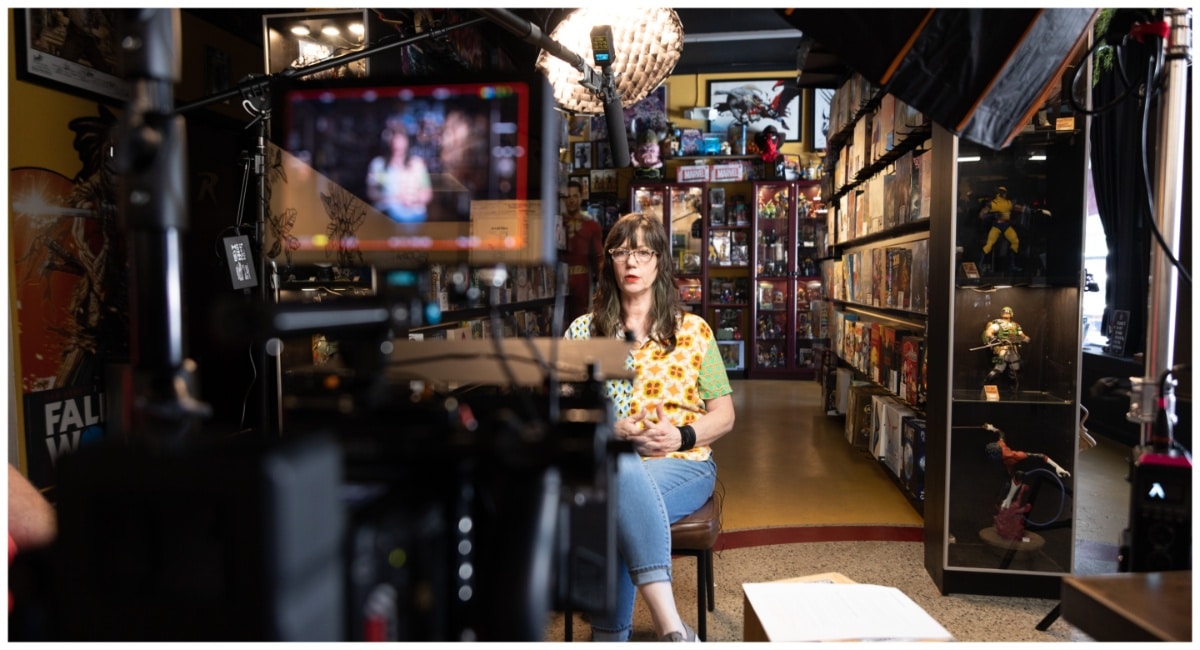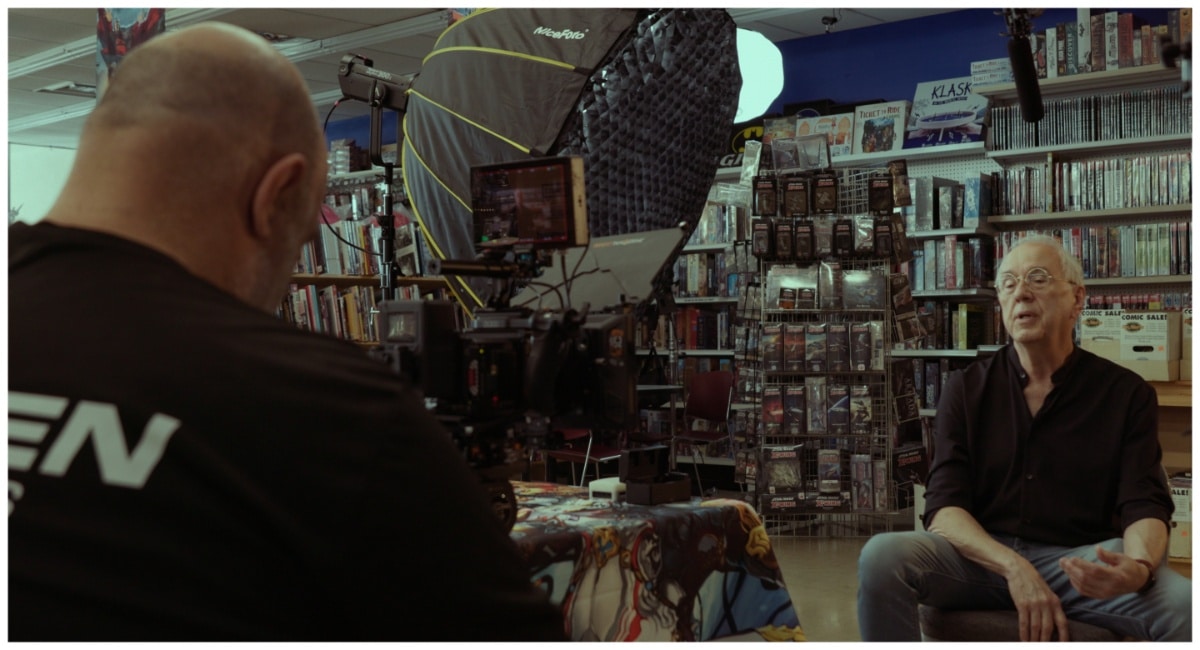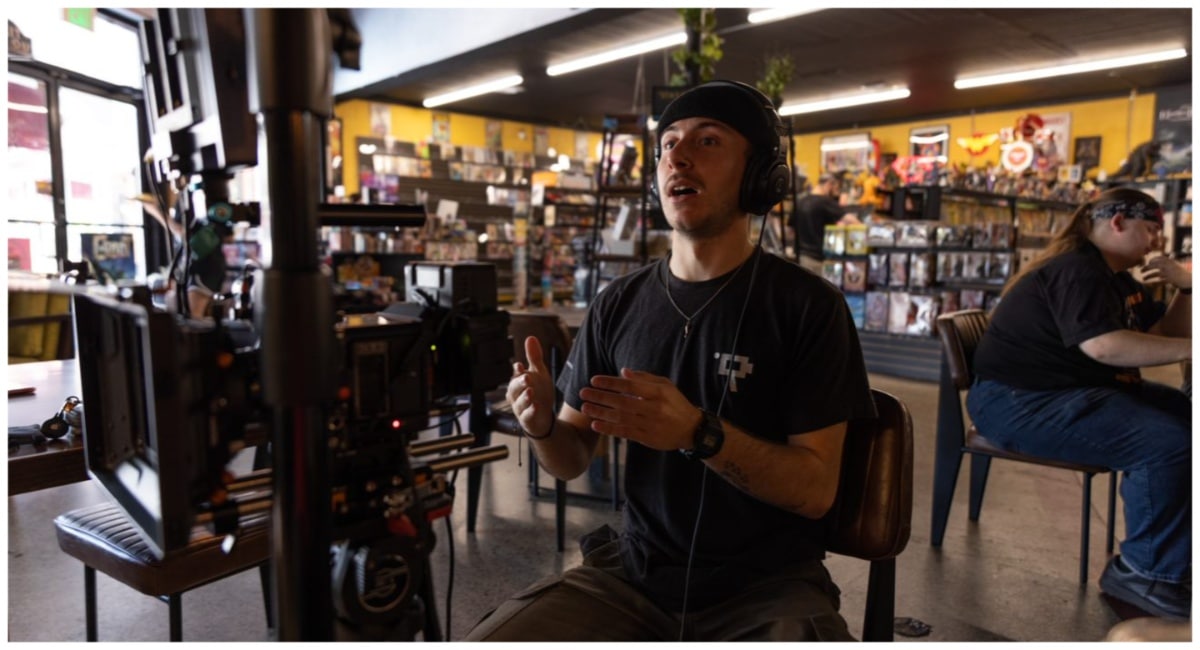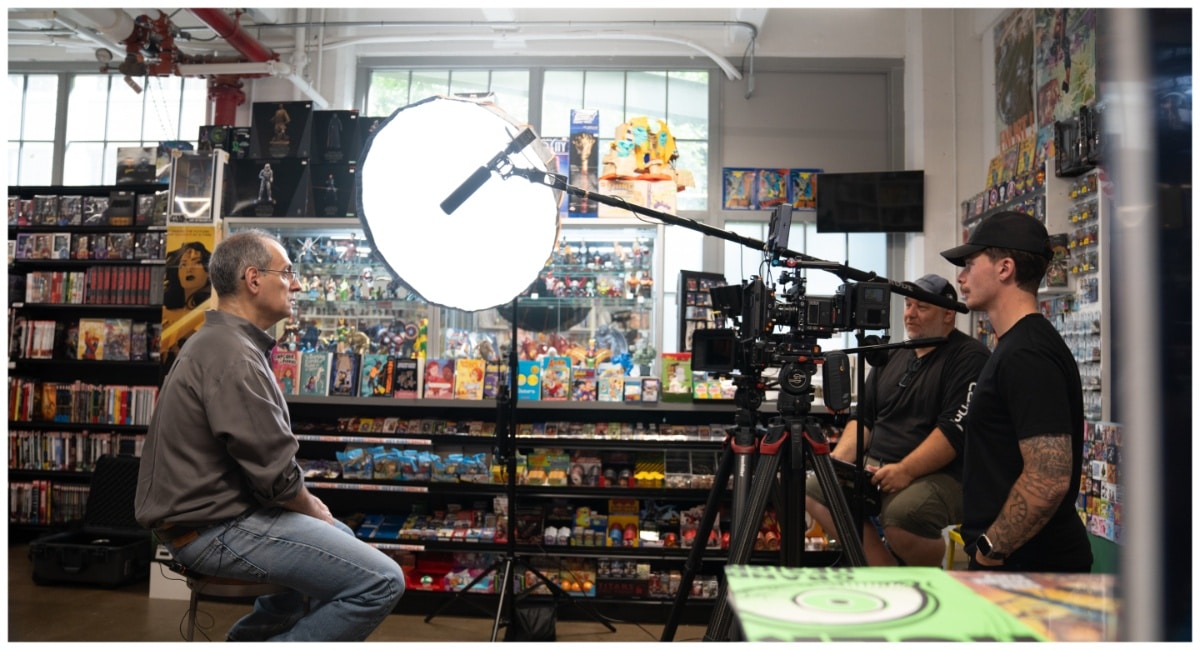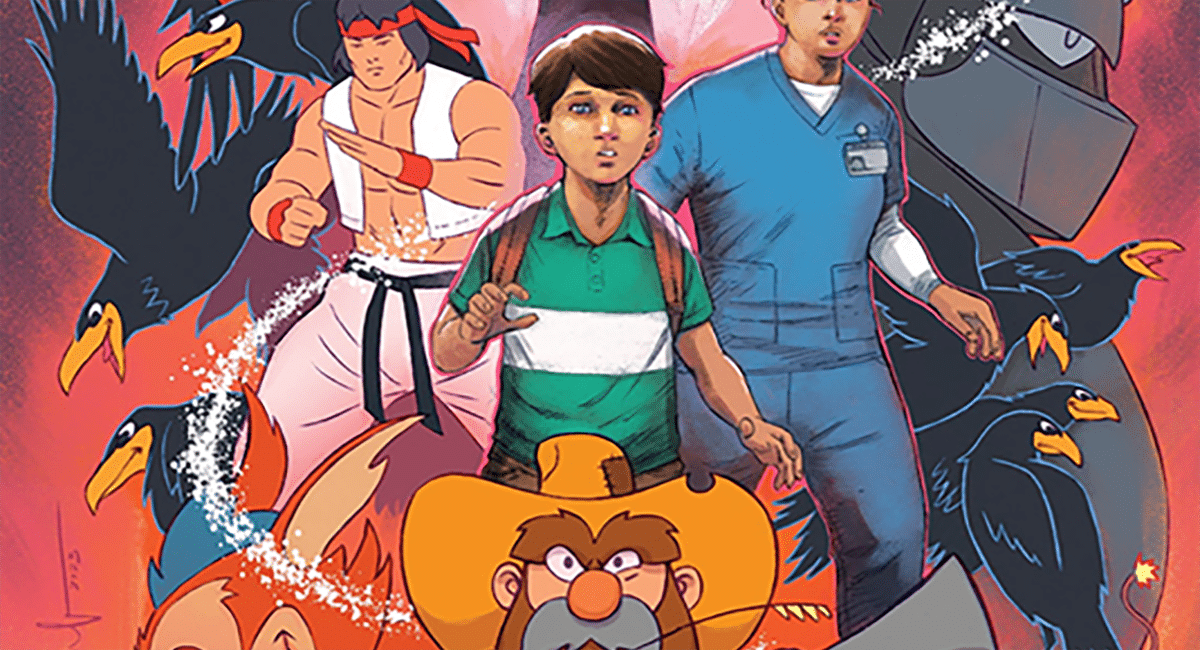Joe Nicklo and his unique project, Surviving Comics: The Documentary, explores an important question: Can the comic book industry survive another 100 years?
The Beat caught up with Nicklo to learn more about the documentary and the work that went into the project, who they visited, what inspired him to do so, and most importantly how he plans to showcase the resilience of comic book retail!
DIEGO HIGUERA: What inspired you to embark on the journey of creating Surviving Comics The Documentary?
JOE NICKLO: In 2023, a lot of production companies, big and small, seemed to suffer. I don’t understand why, but a lot of companies were struggling getting work. We were one of those. Our sales, our revenue was more than cut in half, we took a huge hit.
So instead of just sitting there and doing nothing and crying about it, we wanted to make something. We, my buddy Matt and I, he’s a director, and we’ve worked on a lot of projects together. We were like, “Let’s do a documentary. let’s fund ourselves, we’ll start off small and just see where it goes.” We originally were just going to do, like, a couple of comic book shops in Florida.
From there, it just started to turn into something bigger and bigger and bigger. I remember being on a flight to Long Beach, to film a project out there, and I remember being on the flight and I was watching some other comic book documentaries. I said to myself, we can definitely bring a more cinematic feel to it, right? Because if people seem to appreciate all the MCU movies and the quality that they have, I think that we could kind of bring maybe that sort of level of production, some more cinematic feel, more cinematic look to a comic book documentary. You’ve seen a million comic book documentaries where they use Comic Sans and wham, bam, bam, like 1960s Batman, so we just want to you know, initially we just wanted to bring, like, a different vibe towards that, you know, a comic book doc.
But then, the more we start talking to comic shop owners, the more we realize that the industry is actually not as stable as we thought it was, from an outsider, right? I’ve never owned a comic shop, right? I’ve gone to so many of them to buy all my books, you know, from a local shop, but I’ve never understood that, you know how much actually went into keeping a comic book shop alive. That’s just the story, just kept growing and growing and growing from there.
Then we realized that we got to go out of state. We went to Atlanta, we went to New York. And we kind of stopped there. We filmed a few shops, several shops in Florida, a few shops in New York, and one in Atlanta. Then the more we started posting it on social media, we started getting people saying, you should come to this shop in Massachusetts, Las Vegas, you should go here, you should go there. Everyone’s saying, we should go to all these different places. That’s when we realized that this could be something much bigger.
HIGUERA: Could you provide more insight into the central theme that this documentary aims to explore concerning the resilience of comic book shops?
NICKLO: I wanted to show that comic book shops are a vital part of not just American culture, but around the world really. But, the comic book shop is more of an American-born thing, right? I just want to show how important it is to our culture.
It’s a place of good, right? There’s so many good things that come from comic book shops, especially in a time where everyone is on their phones. There have been a lot of shops we went to where people are playing card games together. They’re playing Magic and Pokémon, they’re doing book clubs, they’re reading books, they’re hanging out, they’re talking. The people are socializing! People are talking face-to-face and not on their phones, you know? It’s just a really huge part.
If comic book shops go away, where are these people gonna go? They’re gonna go back, you know, online. It’s like a big ecosystem. Imagine this ecosystem disappearing because the shops can’t stay in business. Rent is uncontrollable, but another thing too is that we keep hearing over and over again, is that Marvel and DC are not listening. They’re not communicating at all.
Almost like a feeling of abandonment from Marvel and DC, which is sad considering that the comic books, comic shops helped them be what they are today. Like there would be none of these movies without these shops, right?
HIGUERA: What challenges do comic book shop owners face in today’s market, and how do these challenges compare to those of the past?
NICKLO: There’s basically so much, but there’s a lot of competition with online, whether it’s Amazon, other retailers, or even Marvel and DC selling their comic books online. So there’s the digital thing, then there’s third-party sellers that are selling on eBay but another thing too, is that Marvel and DC just aren’t listening. They’re not putting out stories that are resonating with the broader audience.
HIGUERA: Could you share some insights or anecdotes from your interviews with comic book shop owners so far? What are some common themes or stories that have emerged?
NICKLO: Common themes – “Marvel & DC aren’t communicating with us (the shop owner).” Another common theme is that shops need to be open-minded to survive. That means being willing to sell other products like TCG’s, Pops, etc. to get people in the door. One other is that most (but not all) of the shop owners don’t think brick & mortar shops will fully disappear anytime soon. For the most part, they’re very optimistic of their chances at survival.
One final common theme is that customer service and making personal connections is paramount to a shop doing well. This makes sense, and might seem like a no-brainer but some shop owners may not understand this.
HIGUERA: What role do comic book shops play in preserving the comic book medium and its cultural significance?
NICKLO: I think, let’s face it, if comic book shops did disappear, people would still buy comic books, but a big part of the culture is basically sharing what you enjoy with someone else.
You can still get that online, but you can’t get it on a personal level. I feel like there’s still a disconnect. Like, you could talk about it but I feel like comic books, comic shops, they just offer a place for people to gather and be together to share this medium.
I mean, I think there’s something about the excitement of going and picking up a book in person. Not to mention browsing through books, the hunt everyone keeps talking about! Collectors always talk about the hunt. I think it just adds that personal touch that you would not get online.
HIGUERA: How do you plan to showcase the resilience of comic book retail throughout the decades in your documentary?
NICKLO: By telling the stories of successful shops that are not only thriving but even growing. We are interviewing the owner of Coliseum of Comics who just opened another store. He has over a dozen in Florida!
We interviewed another shop owner, Rick Shea of Famous Faces & Funnies who recently bought a second store and it’s doing really well. Another store we featured is considering opening another store.
One thing I wanted to mention, as we continue production, we will also be speaking to comic fans/collectors to get their insights and we are TRYING to line up some creators and former publishers.
Basically, we want this to be the most comprehensive documentary on comic book shops ever.
Finally, I wanted to note that even though our first wave of marketing has been targeted solely at comic book fans, we hope to tell this story to general audiences…non-fans/readers so they can maybe become fans of the genre, visit their local shop.
The same way Netflix had “Drive To Survive” introduce Formula 1 to a horde of new fans, we hope to do the same for comics by getting this doc on one of the major streaming platforms.
Learn more about Surviving Comics: The Documentary and the Indiegogo campaign here!


